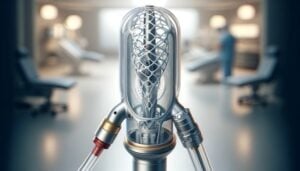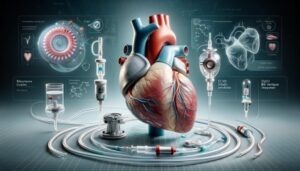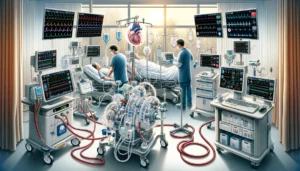
Identifying and Mitigating Risk of Post-Cardiotomy Cardiogenic Shock in Patients with Ischemic and Non-Ischemic Cardiomyopathy
This study aimed to identify preoperative predictors of post-cardiotomy cardiogenic shock in patients with ischemic and non-ischemic cardiomyopathy, focusing on 238 patients undergoing cardiac surgery. It found that pulmonary artery pulsatility index and pulmonary capillary wedge pressure were key predictors, with the predictors varying between ischemic and non-ischemic conditions. The study highlights the importance of preoperative right heart catheterization in identifying patients at higher risk of cardiogenic shock. Ejection fraction improvements were noted at 12 months post-surgery.










